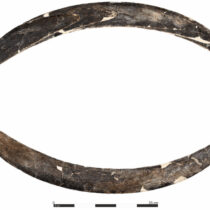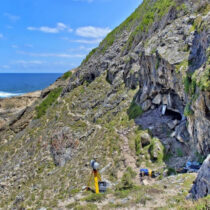The Stories Bodies Tell is an inclusive interdisciplinary symposium exploring the many and diverse ways bodies tell and reveal their stories, with or without intention. It will take place online on Saturday 24th July 2021 – Sunday 25th July 2021.
In Edgar Allan Poe’s short story “The Tell-Tale Heart” a heart lies thumping under the floorboards, driving the narrator from his senses. The body betrays, the ears hear what the mind denies. In Oscar Wilde’s “The Picture of Dorian Gray”, Dorian tries to escape having the consequences of his actions inscribed on his own body by trapping his soul in a painting, so that he himself will never grow ugly or old. But he can’t stop looking at the sickly-looking portrait. Body obsession becomes the downfall of the evil queen in Snow White as well, just as it does for Narcissus; a mirror is a dangerous place to live.
Being desired makes victims of women in Greek mythology; nymphs turn into trees and reeds, and Medusa becomes a monster – the only way to escape the desiring gaze. But ugliness comes with a high cost too. In fairy tales, warts tend to be found only on witches and toads; they mark their wearers as less than and/or distinguish them as “Others” / “someone outside of the norm” / “someone who can be killed without consequence”. In fiction at least, the body often reveals what is hidden inside: those who are beautiful must also be good, and troll girls can always be known by their tails.
We struggle to escape physical representation. Beauty, illness, monstrosity, body art and modifications, fashion, culture, subcultures, history, and more all impact bodies and the stories they tell. Life is visibly inscribed on every line and in every pore of our body. What is beautiful and who is expected to be so seems intimately tied to the present; a relative story that changes with fashion and culture. And while some use personal expression to frame their own narrative, others seek to challenge the notion that the body says anything valid about what lurks inside on its own. The body may become a prison, when illness, disability or age takes over. It can be the vehicle of the warrior, surviving battles, enduring childbirth, committing astounding feats, revealing abilities we never knew we had. It can survive incredible things, and the scars left behind tell stories of what we went through. Even the corpse, cold and stiff, may hide a last few secrets, readable by those who understand.
My body. Your body. Our bodies. Whether we accept them, attempt to change or modify them, or even outright reject them, they remain inescapable, reminders of all we and others have experienced, vehicles of expression, storytellers we can never really silence.
Join “The Stories Bodies Tell” discussions to share and explore some of the surprising, startling and challenging ways bodies can become storytellers and what they reveal as they do.
Key Topics
Key topics, themes and issues for discussion may include, but are definitely not limited to:
– Body horror, haunted bodies, uncanny bodily experiences
– The body as a tattle-tale: the physicality of trauma, fear, and desire
– The body as narrator: what stories are written on our skin or in our blood?
– Corpses, decaying or diseased bodies, the stories told by crime scenes
– Devouring bodies, the nature of flesh, complicated eating.
– Non-human bodies; animal bodies. The human animal.
– Gendered, racialized storytelling
– Queer history, burlesque, and performance art as negotiation of body narratives
– Transitional states: chrysalis, metamorphosis, becoming something different
– The body and the senses.
– The body as my home. The body as my friend. The body that betrays.
– When bodies fail. Broken bodies. Body parts. Transplants. Surgery. Prosthetics.
– Living with disability, reframing disability
– Plastic surgery, cosmetic enhancement, posthuman bodies
– The symbolic language of tattoos and scarification
– The role of body, touch, and movement in ritual
– “Bad” bodies: freaks, sluts, monstrous transgressors of the normal
– Sex and sexuality as expression
– Fashion and fetichism through history – from Chinese foot-binding to tight-laced corsets
– Victimized bodies
– The affective experience of touch and intimacy
– Thin bodies, fat bodies, body shame and body celebration
– Body doubles and doppelgangers, the fear of being replaced
– Pregnancy, birth, the myths and metaphors of motherhood
– The symbolism of individual organs: what have the lungs, the thumping heart, or the genitals to say?
What To Send
The aim of this interdisciplinary conference and collaborative networking event is to bring people together and encourage creative conversations in the context of a variety of formats: papers, seminars, workshops, storytelling, readings, performances, poster presentations, panels, q and a’s, round-tables etc.
At the end of the conference we will be exploring ways in which we can develop the discussions and dialogues in new and sustainably inclusive interdisciplinary directions, including research, workshops, publications, public interest days, associations, developing courses, etc which will help us make sense of the topics discussed during the conference and ensure that our efforts are continued in our own communities.
300 word proposals, presentations, abstracts and other forms of contribution and participation should be submitted by Wednesday 23rd June 2021. Other forms of participation should be discussed in advance with the Organising Chair.
All submissions will be minimally double reviewed, under anonymous (blind) conditions, by a global panel drawn from members of the Project Development Team and the Advisory Board. In practice our procedures usually entail that by the time a proposal is accepted, it will have been triple and quadruple reviewed.
You will be notified of the panel’s decision by Friday 25th June 2021.
If your submission is accepted for the conference, a full draft of your contribution should be submitted by Monday 19th July 2021 at the latest.
Abstracts and proposals may be in Word, RTF or Notepad formats with the following information and in this order:
a) author(s), b) affiliation as you would like it to appear in the programme, c) email address, d) title of proposal, e) body of proposal, f) up to 10 keywords.
E-mails should be entitled: Body Stories
Where To Send
Abstracts should be submitted simultaneously to the Organising Chair and the Project Administrator:
Organising Chair: Freja Gyldenstrøm: freja@progressiveconnexions.
Project Administrator: Len Capuli (Project Administrator): storiestold@
What’s so Special About a Progressive Connexions Event?
A fresh, friendly, dynamic format – at Progressive Connexions we are dedicated to breaking away from the stuffy, old-fashion conference formats, where endless presentations are read aloud off PowerPoints. We work to bring you an interactive format, where exchange of experience and information is alternated with captivating workshops, engaging debates and round tables, time set aside for getting to know each other and for discussing common future projects and initiatives, all in a warm, relaxed, egalitarian atmosphere.
A chance to network with international professionals – the beauty of our interdisciplinary events is that they bring together professionals from all over the world and from various fields of activity, all joined together by a shared passion. Not only will the exchange of experience, knowledge and stories be extremely valuable in itself, but we seek to create lasting, ever-growing communities around our projects, which will become a valuable resource for those belonging to them.
A chance to be part of constructing change – There is only one thing we love as much as promoting knowledge: promoting real, lasting social change by encouraging our participants to take collective action, under whichever form is most suited to their needs and expertise (policy proposals, measuring instruments, research projects, educational materials, etc.) We will support all such actions in the aftermath of the event as well, providing a platform for further discussions, advice from the experts on our Project Advisory Team and various other tools and intellectual resources, as needed.
An opportunity to discuss things that matter to you – Our events are not only about discussing how things work in the respective field, but also about how people work in that field – what are the struggles, problems and solutions professionals have found in their line of work, what are the areas where better communication among specialists is needed and how the interdisciplinary approach can help bridge those gaps and help provide answers to questions from specific areas of activity.
An unforgettable experience – When participating in a Progressive Connexions event, there is a good chance you will make some long-time friends. Our group sizes are intimate, our venues are comfortable and relaxing and our event locations are suited to the history and culture of the event.
Ethos
Progressive Connexions believes it is a mark of personal courtesy and professional respect to your colleagues that all delegates should attend for the full duration of the meeting. If you are unable to make this commitment, please do not submit an abstract or proposal for presentation.
Please note: Progressive Connexions is a not-for-profit network and we are not in a position to be able to assist with conference travel or subsistence, nor can we offer discounts off published rates and fees.
All enquiries should be sent to: storiestold@
Further details and information can be found by going to the conference web page: https://www.





